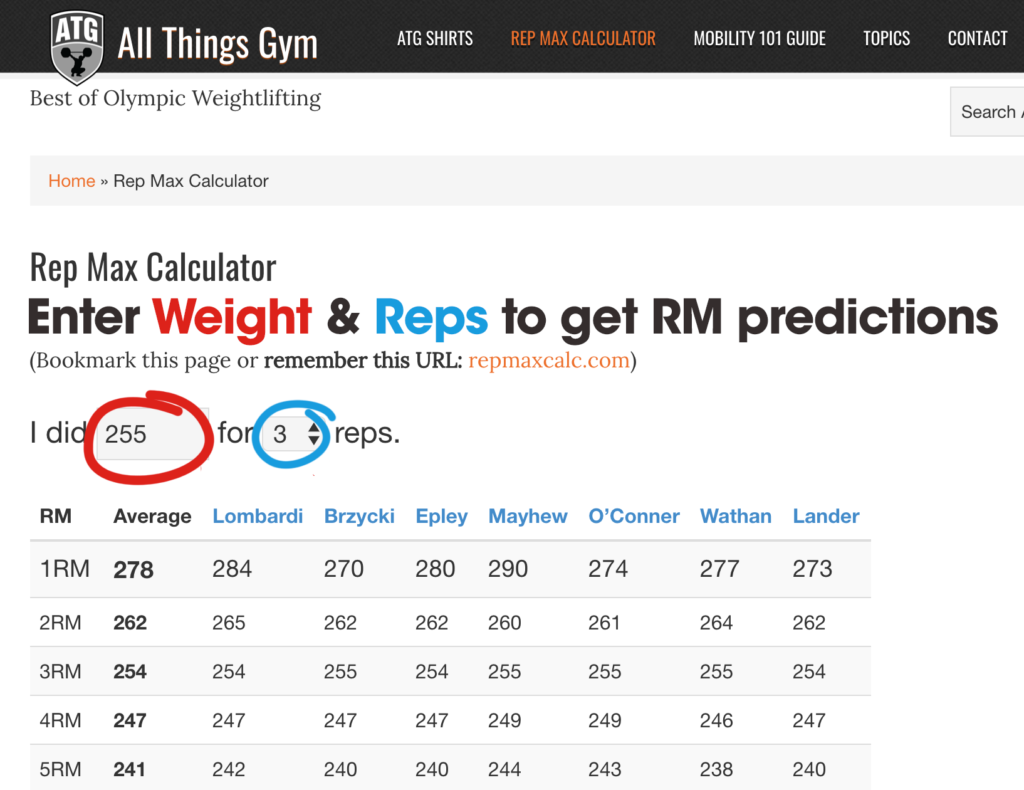So in order to teach myself some programming I coded a little Rep Max Calculator for ATG.
Easy to remember URL: repmaxcalc.com
About the Formulas:
- Of course they are not 100% accurate, but they do a reasonably good job for up to 10 reps.
- Play around with the numbers to see what formula works best for you. I’ll add more later on.
- Read more about them on Wikipedia.
You can play with the Code on CodePen and help improve it.
Disclaimer: this is my first time programming something. All you pro javascript developers will probably get a heart attack looking at this.

Kilos or pounds?
Both, but you should think in kg anyways 😉
yeah, always think kg in WL dude! and in life in general ))
its just numbers dude
I am also playing around with coding, and trying to learn a bit more stats, and I have an idea to bounce off of you. It seems like the problem with some of the equations used for max calculators is that they were based off of small sample sizes, and maybe inexperienced lifters…. I think it’d be cool if somehow a max calculator was developed that was based off of “crowd-sourcing”….or in other words, thousands of visitors could tell you what their maxes were, 1rm’s, 5rm’s, etc… and with more and more visitors that added to the database, the equation could get more and more accurate. Maybe eventually it could even get to the point where the results change based on training years or strength levels (maybe you’d see the numbers taper off above certain squat poundages for instance). It just seems like an equation based off thousands of results has to be better than one based off 50 people in a lab. And allthingsgym seems like the place to have that survey.
This sounds cool on paper, but I see some major difficulties.
In order to get valid results you have to have a very rigorous system in place. Self reporting is one of the weakest form of surveying. This project would need some trained statisticians to avoid the common pitfalls (that occur in scientific research).
So I doubt this would yield something better than the formulas I posted (of course I would like to be proven wrong here 🙂 ). For me they do a pretty decent job of predicting my rep maxes.
Yea, and obviously all the predictive power in the world could be ruined by a bad nights sleep or something. But it’d be fun to try
I did something similar a couple months back – but in Google Drive. If anyone wants it or has feedback:
https://docs.google.com/spreadsheets/d/1h27R71J8bUTT0O8rHmT8XMBbPTr0mTgA-jgsX5ZOXz4/edit?usp=sharing
it uses 7 equations to calculate 1RM, Weight to use on a multiple rep max attempt given a projected 1RM, and calculates how many reps you should get at a given weight using a projected or true 1RM.
Equations:EpleyBrzyckiLanderLombardiMayhew et al. O’Conner et al. Wrathan
Thanks for sharing